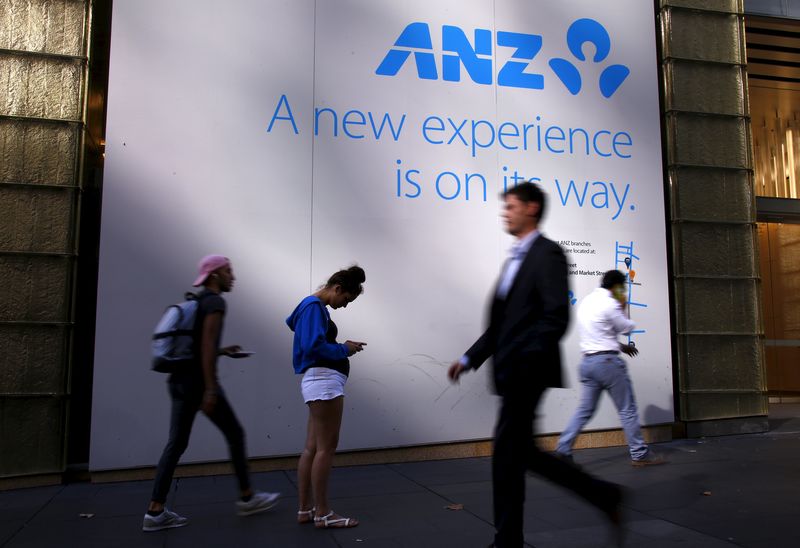* Australian bank dividend yields still among world's highest
* Banks facing slowing revenue growth, narrowing margins
* Westpac, NAB left dividends unchanged, ANZ slashed
* Short positions in banks near record levels on housing risks
By Swati Pandey
SYDNEY, May 5 (Reuters) - Australia's major lenders this week signalled they are ready to forego some of the highest dividends in the banking world after seven years of rising payouts, putting investors like the $1.5 trillion pension industry on notice of lower returns in future.
In a dire week of bank results, Westpac Banking Corp WBC.AX left its dividend unchanged after growing it since 2009, ANZ Banking Group ANZ.AX cut dividends for the first time in seven years and National Australia Bank NAB.AX kept its dividend steady for the second straight half. of the four major lenders also decided to pass on Tuesday's 25 basis point cut in official interest rates in full, squeezing margins which are already near record lows due to tougher capital requirements and stifling competition.
The rate cut more than reverses hikes by each of the major banks including Commonwealth Bank of Australian CBA.AX since late last year, and spells the end of an era of ever-rising yields for bank investors.
"We are certainly more cautious with respect to dividend sustainability for Australian banks and have been more comfortable shifting exposure to sectors such as REITs and utilities," said Singapore-based Sat Duhra, who manages Henderson's Asia dividend income fund.
"We assess the risks to the sector has being higher than 12 months ago - the capital issue is 'when' rather than 'if', dividends are not expected to be sustainable during this process and the housing market has continued into bubble territory."
To be sure, Australian banks offer dividend yields of 5.5-7 percent, well ahead of international peers like U.S. retail lender Wells Fargo (NYSE:WFC) at 3 percent and British bank Lloyds' LLOY.L 3.4 percent.
But the cost of funding is going up and something has to give, ANZ CEO Shayne Elliott warned on Tuesday.
"So either the shareholders just accept a lower return or banks work really hard on productivity and reconfiguring their business," he told reporters.
Some of that reconfiguring is likely to include boosting accountability and pulling back from aggressive practices that have resulted in a series of reputationally damaging scandals. top of their balance-sheet worries, bank executives are fighting calls for a high-powered judicial inquiry into industry misconduct ahead of a general election expected on July 2.
THE BIG SHORT?
The "Big Four" banks, which cruised through the global financial crisis on the back of a solid mortgage market and the commodities boom, are rethinking strategies to boost productivity and lower costs.
ANZ is shifting its strategic focus away from low-returning businesses in Asia. Others are deploying less capital in institutional lending, where competition from foreign lenders is intense, and pushing further into housing. They are also cutting costs and staff.
But some investors are not convinced. Bank shares have taken a beating this year, down 5-12 percent, and hedge funds are taking unprecedented short positions due to concerns about inflated house prices. executives counter that their asset quality is sound. The major banks' Tier 1 capital buffers, at 11.8 percent to 14.3 percent, are commensurate with global peers and rising.
"When you've got an economy in transition like the Australian economy is you're going to face some stressed accounts," NAB CEO Andrew Thorburn said on Thursday after the bank posted a 7.4 percent rise in bad debt charges from Sept-end, reflecting an industry-wide trend. fund UniSuper, with A$52 billion ($38.77 billion) in funds under management, is one investor that is prepared to ride out the banks' troubles.
It notes that Australian households, on average, have assets well in excess of debt and, if unemployment remains steady, borrowings can be serviced even if property prices stumble. ($1 = 1.3414 Australian dollars)
